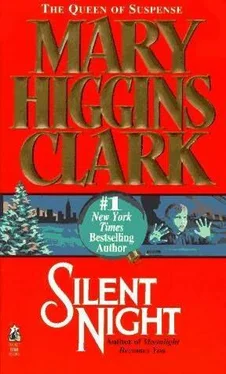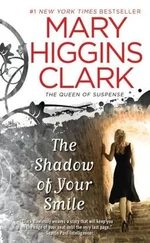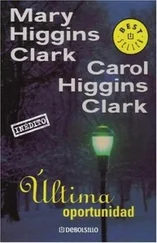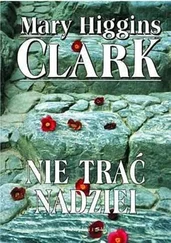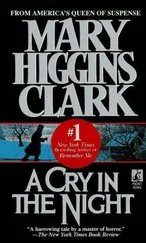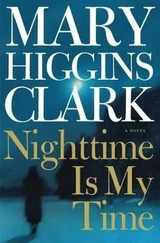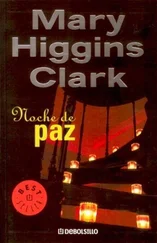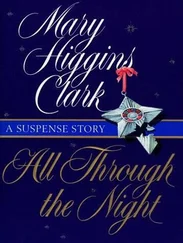Mary Clark - Silent Night
Здесь есть возможность читать онлайн «Mary Clark - Silent Night» весь текст электронной книги совершенно бесплатно (целиком полную версию без сокращений). В некоторых случаях можно слушать аудио, скачать через торрент в формате fb2 и присутствует краткое содержание. Жанр: Триллер, на английском языке. Описание произведения, (предисловие) а так же отзывы посетителей доступны на портале библиотеки ЛибКат.
- Название:Silent Night
- Автор:
- Жанр:
- Год:неизвестен
- ISBN:нет данных
- Рейтинг книги:3 / 5. Голосов: 1
-
Избранное:Добавить в избранное
- Отзывы:
-
Ваша оценка:
- 60
- 1
- 2
- 3
- 4
- 5
Silent Night: краткое содержание, описание и аннотация
Предлагаем к чтению аннотацию, описание, краткое содержание или предисловие (зависит от того, что написал сам автор книги «Silent Night»). Если вы не нашли необходимую информацию о книге — напишите в комментариях, мы постараемся отыскать её.
Silent Night — читать онлайн бесплатно полную книгу (весь текст) целиком
Ниже представлен текст книги, разбитый по страницам. Система сохранения места последней прочитанной страницы, позволяет с удобством читать онлайн бесплатно книгу «Silent Night», без необходимости каждый раз заново искать на чём Вы остановились. Поставьте закладку, и сможете в любой момент перейти на страницу, на которой закончили чтение.
Интервал:
Закладка:
Catherine felt relief rush through her. “I’m glad he knows, Spence. I didn’t know how to tell him. I couldn’t be sure how he’d take it.”
“He took it very well, Catherine. He’s a lot stronger than you might think.” Crowley looked at the medal around Brian’s neck. “I understand you went through a lot to make sure you’d be able to give that medal to your dad. I promise all of you that between St. Christopher and me, we’ll make sure he gets well.”
The boys tugged at Catherine’s hands.
“He’s waiting for you,” Spence said, smiling.
The door of Tom’s room was partly open. Catherine pushed it the rest of the way and stood looking at her husband.
The head of the bed was elevated. When Tom saw them, his face brightened with that familiar smile.
The boys ran to him, then carefully stopped just inches from the bed. They both reached out and grasped his hand. Catherine watched his eyes fill with tears when he looked at Brian.
He’s so pale, she thought. I can tell that he hurts. But he is going to get better. She did not need to force the radiant smile that her lips formed as Michael lifted the chain with the St. Christopher medal from Brian’s neck and together they put it on Tom. “Merry Christmas, Dad,” they chorused.
As her husband looked over their sons’ heads and his lips formed the words I love you , other words sang through Catherine’s being.
All is calm… all is bright .
Mary Higgins Clark Talks About Her Life and Work
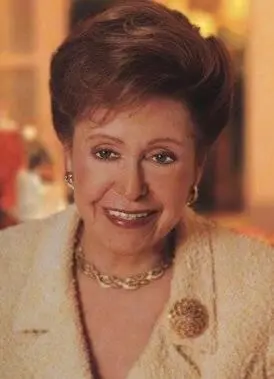
• Does Christmas hold a special significance for you?
“Yes. It is a family holiday time and my birthday is on Christmas Eve. Christmas 1996 will be very special for me-after many years of widowhood, I am getting married and will be celebrating my first Christmas with my husband, John J. Conheeney.”
• Your books are worldwide bestsellers. What is the secret of your popularity?
“I write about universal emotions and relationships. People can walk in the shoes of my characters.”
• Where do you get the inspiration for your plots?
“From real life. I attend criminal trials regularly. The amount of coincidence in crime is staggering. For example, a young nurse in New Jersey was on her way to work and someone got into her car at a red light. A few minutes later she was dead. She was going to work. She wasn’t doing anything foolish. She is typical of characters in my books-people to whom things happen, who are not looking for trouble.”
• What kind of people do you write about?
“Nice people whose lives are invaded by evil. They are people with whom we can identify-leading ordinary lives and going about their business. My heroines are strong women who take a major role in solving their own problems. A man may come in to help at the end, but the woman basically copes with the menacing situation herself.”
• When did you first realize you wanted to be a writer?
“I knew it as a child. The first thing I wrote was a poem, when I was seven. I still have it. It’s pretty bad, but my mother thought it was beautiful and made me recite it for everyone who came in. I am sure the captive audience was ready to shoot me, but that kind of encouragement nurtures a budding talent. From the time I was seven, I also kept diaries. I can read them now and look back at what I was like at different ages. I still keep diaries; they are a great help to my novels. No one has seen them-they are locked in a trunk.”
• What early experiences influenced you?
“I grew up in the Bronx, where my father was the owner of Higgins Bar and Grille. When I was ten years old, I had a terrible shock. Coming home from early Mass one morning, I found a crowd of neighbors outside the house. My father had died in his sleep. My mother went on to raise me and my two brothers alone. When I had said good night to my father, I didn’t know it was for the last time. His sudden death jolted me into awareness of the fragility of life. My mother’s example taught me resilience. The characters in my books are resilient and resourceful. When calamity strikes, they carry on.”
• How did your father’s death influence the course of your life?
“Our whole existence changed. My mother tried to get a job, but at that time it was practically impossible for women in late middle-age to return to the job market. She took baby-sitting jobs and, while I was in high school, I worked as a baby-sitter and switchboard operator. After graduating from high school, I went to secretarial school, so I could get a job and help with the family finances.”
• So you had to sacrifice your college education?
“Only postpone it. I went to college after my children were grown and I was already an established writer. In 1979, I graduated from Fordham University at Lincoln Center summa cum laude with a B.A. in philosophy. To celebrate, I gave myself a graduation party. The card read: ‘This invitation is 25 years overdue-help prove it’s not too late.’”
• What happened in the years before you became a professional writer?
“After completing secretarial school, I worked for a couple of years in an advertising agency. Then one day, a friend-a Pan Am stewardess-spoke seven words that changed my life: ‘God, it was beastly hot in Calcutta.’ I decided that I, too, wanted to see the world and signed up as a Pan Am stewardess. My run was Europe, Africa and Asia. I was in a revolution in Syria and on the last flight into Czechoslovakia before the Iron Curtain went down. I flew for a year and then was married to Warren Clark.”
• When did you start your writing career?
“After I got married, I signed up for a writing course at New York University. There, I got advice from a professor which has always served me well. He said, ‘Write about what you know. Take a dramatic incident with which you are familiar and go with it.’ I thought of my experience on the last flight to Czechoslovakia and gave my imagination free rein. ‘Suppose,’ I reflected, ‘the stewardess finds an eighteen-year-old member of the Czech underground hiding on the plane as it is about to leave.’ The story was called ‘Stowaway.’ It took six years and forty rejection slips before I sold it to Extension magazine in 1956 for a hundred dollars. I framed that first letter of acceptance.”
• You were widowed at an early age, with five young children. Did that discourage you from pursuing your goal?
“No, on the contrary. To help fill the gap, I decided to concentrate on writing. My children ranged in age from thirteen down to five. Because of his heart condition, Warren Clark wasn’t insurable, so I had to work. Just a few hours before he died of a heart attack, I had called a friend who did radio script writing. She had often asked me to join her company in writing for radio and I began writing radio shows. For fourteen years, I supported my family writing these programs. The series consisted of five four-minute programs a week, syndicated on five hundred stations and hosted by celebrities such as Betsy Palmer, Hugh Downs, Bill Cullen, Lee Meriwether and Betty White. But I knew that writing radio scripts wasn’t enough. I wanted to write books.”
• What was your first book?
“A biographical novel about George Washington, Aspire to the Heavens , based on a radio series I was then writing called ‘Portrait of a Patriot,’ vignettes about presidents. It was a commercial disaster and remaindered as it came off the press. But it showed that I could write a book and get it published.”
Читать дальшеИнтервал:
Закладка:
Похожие книги на «Silent Night»
Представляем Вашему вниманию похожие книги на «Silent Night» списком для выбора. Мы отобрали схожую по названию и смыслу литературу в надежде предоставить читателям больше вариантов отыскать новые, интересные, ещё непрочитанные произведения.
Обсуждение, отзывы о книге «Silent Night» и просто собственные мнения читателей. Оставьте ваши комментарии, напишите, что Вы думаете о произведении, его смысле или главных героях. Укажите что конкретно понравилось, а что нет, и почему Вы так считаете.
